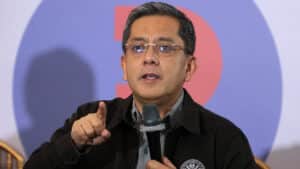Books will remain tax-free, according to the Department of Finance.
“First, under the Tax Code, the exemption of the purchase of books, we did not touch that. If you buy a book from a bookstore, it will still be VAT [value-added tax]-exempt. Second, the importation exemption under the Customs Modernization and Tariff Act [CMTA], we also did not touch that,” Finance Undersecretary Karl Kendrick T. Chua said in a statement.
He allayed fears that House Bill No. 8083 or the Tax Reform for Attracting Better and High-quality Opportunities (Trabaho) bill will remove the tax-free perk of importing and buying books.
The “Trabaho” bill contained the second tax reform package aimed at slashing the corporate income tax rate from 30 percent at present—the highest in Asean, while rationalizing the fiscal incentives being enjoyed by investors.
Also, “the Philippines will continue to abide by the provisions of the Florence Agreement, a 1950 United Nations treaty in which the signatory-states agreed not to impose customs duties on the importation of certain educational, scientific and cultural materials, including books,” Chua said, referring to the agreement signed by the country in 1979.
Chua clarified that under HB 8083, the lone provision that touched on the book industry involved repealing the tax provision of Republic Act No. 8047 or the Book Publishing Industry Development Act two years after the passage of the second tax package.
“The inclusion of the book publishing industry in the Trabaho bill’s repeal clauses does not mean that its VAT- and duty-free importation of books would be removed,” Chua explained.
“The book publishing industry will be included in the Strategic Investment Priority Plan (SIPP) after an evaluation process. And in my view, this is among the sectors that has a great chance of being included in the SIPP,” Chua added.
“If included in the SIPP, the book industry may even enjoy more incentives under the proposed single menu of incentives in the Tax Code, like the income tax holiday, special rates and additional deductions,” according to Chua.


